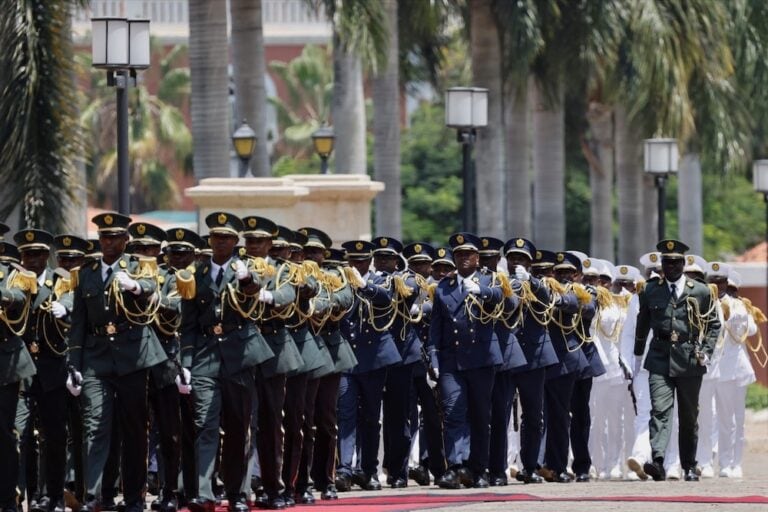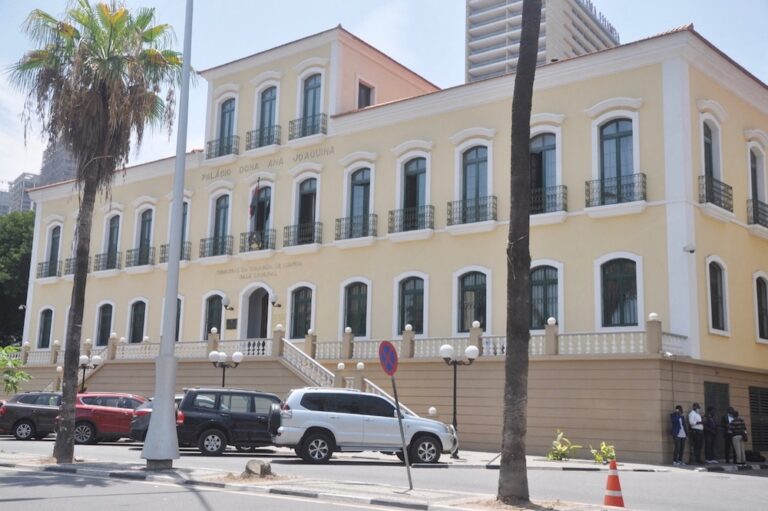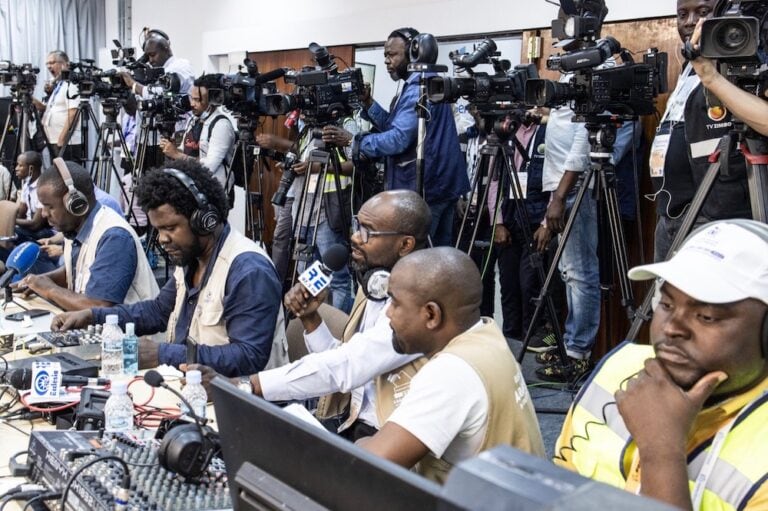(MISA/IFEX) – On Monday 9 August 1999, the chief editor of the Catholic FM station Radio Ecclesia, Paulo Juliao, and two other journalists, Laurinda Tavares and Filipe Joaquim, were detained by officers of the police’s Criminal Investigation Department (DNIC) after the station had re-broadcast a BBC interview with UNITA rebel leader Jonas Savimbi. Four officers […]
(MISA/IFEX) – On Monday 9 August 1999, the chief editor of the Catholic FM
station Radio Ecclesia, Paulo Juliao, and two other journalists, Laurinda
Tavares and Filipe Joaquim, were detained by officers of the police’s
Criminal Investigation Department (DNIC) after the station had re-broadcast
a BBC interview with UNITA rebel leader Jonas Savimbi.
Four officers in plain clothes raided the studio some fifteen minutes before
the evening news service with arrest warrants for Juliao and Emanuel da
Mata, another journalist at the station. The officers also had warrants to
search and confiscate the material containing the interview.
The director of Radio Ecclesia, Antonio Jaka, told MISA-Angola that the
station was shut by 7:30 p.m. (local time) last night “as the police
expressed the intention to take all the people on duty at that moment. But,
after some argument, they decided to detain only Laurinda Tavares and Filipe
Joaquim, to replace Emanuel da Mata, who was absent.” Jaka added that “the
police searched the studios and confiscated the diskette containing the
interview with Jonas Savimbi.”
Juliao, Tavares and Joaquim were held at the DNIC for four hours and
interrogated simultaneously, but in different rooms. They were released by
midnight.
In a group interview conducted by Radio Ecclesia on the morning of 10
August, the three journalists said the police had asked questions about
their personal life, political affiliation and the objectives of their
action. Juliao said he was accused of allowing the dissemination of
dangerous information and threatening public security, while the others were
accused of keeping dangerous information. Jaka also told MISA-Angola that he
was concerned about the fact that the state television TPA had also
re-broadcast the same interview without incident.
Shortly after noon on 10 August, Juliao was re-arrested along with Emanuel
da Mata, again by DNIC agents, after the station again broadcast the BBC
interview during its 12:00 p.m. news service.
The latest information from Luanda is that the two are still in detention
and that Jaka and several other colleagues are trying to secure their
release at the DNIC headquarters. Radio Ecclesia has reportedly stopped
normal broadcasts and was only playing classical music, with no news or
talking.
MISA-Angola said in a statement that the latest incidents surrounding Radio
Ecclesia were an indication that the threats of violence announced by the
Minister of Social Communication, Hendrik Vaal Neto, in June this year were
coming to reality. The MISA chapter contended that Angolan journalists were
in danger and expressed concern about the consequences of these signs of
intolerance, which it said could lead to a wave of press freedom violations.
A chronology of incidents affecting media workers in Angola, including Radio
Ecclesia, since January this year can be found on the Internet at:
http://www.misanet.org/alerts/19990707.angola.0.html
Recommended Action
Send appeals to authorities:
the
free flow of information in Angola
right enshrined in the Angolan Constitution as well as in numerous
international treaties, to which Angola is a signatory
Appeals To
Hon Jose Eduardo dos Santos
President of the People’s Republic of Angola
Fax: +244 2 392 733 / 391 476 / 331 898Hendrick Vaal Neto
Minister of Information
Fax: +244 2 343
Please copy appeals to the source if possible.


